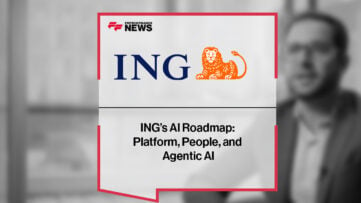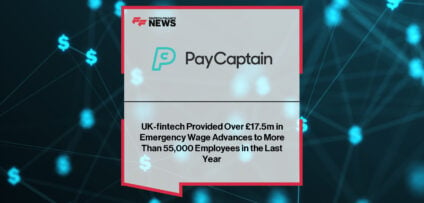Breaking News

EXCLUSIVE: “The Cost of Doing Nothing” – Ron Delnevo, Payment Choice Alliance in ‘The Paytech Magazine’
Ron Delnevo, Chair of the Payment Choice Alliance, asks if the UK has the capacity – or desire to provide the necessary capacity – to make sure payments are made on time, every time
One of the biggest bugbears – for merchants and the public – is the failure of payment services providers to provide sufficient capacity to ensure their systems are genuinely reliable.
Of course, failure to provide sufficient capacity is not limited to financial services. I used to work for the British Airports Authority (BAA) in the late 1970s. The planning department at the BAA was brilliant. Their forecasts of future passenger traffic through UK airports were always accurate – even those looking 20 or more years ahead. The figures they produced foresaw exactly how busy Heathrow, Gatwick, Stansted and other airports would be on a particular day. There was plenty of time to prepare, to build the runways and terminals to provide the required capacity.
But it never really happened – and was particularly lacking around London – leading directly to the shambles we are in today, desperately trying to make up for the failures of the past. Similarly, when Margaret Thatcher decided it was appropriate to sell off the UK’s water, it was because she knew that the cost of meeting water supply and sewage capacity requirements would be very high – and the then Prime Minister didn’t want that cost to be included in government expenditure.
More than 30 years later, with neither the government nor the privatised water industry having provided the required capacity, the UK public sees its water supply under threat and, even, worse, untreated sewage regularly released into rivers. In the early noughties, I was constantly asking banks to improve the services they provided, particularly via ATMS. Their answer was ‘it can’t be done – insufficient computer capacity’.
Despite the fact that UK banks were doing very nicely in this period, the investment to upgrade/replace legacy computer systems had not been made and any new functionality would require a lead time of two years or more. This was around 15 years after the World Wide Web was invented in 1989 by Tim Berners-Lee and at least five years after NatWest had launched the UK’s first full-service internet banking in 1997.
Inadequate investment in capacity = restricted innovation.
It would be possible to quote numerous other historic examples of such capacity failings – the London peripheral carpark, otherwise known as the M25, stands out. But I digress. Let’s return to today’s payment system capacity issues.
According to a UK Treasury Committee report in March 2025, nine of the country’s top banks and building societies wracked up the equivalent of more than 33 days of unplanned tech and systems outages over the previous two years. At least 158 banking IT failure incidents affected millions of customers’ ability to access and use services between January 2023 and February 2025, the report said. And that didn’t include the most recent ‘payday outages’ affecting several high street banks, causing panic and distress to those living paycheque to paycheque in particular.
Barclays’ most recent outage, which lasted for several days, saw 56 per cent of online payments fail due to ‘severe degradation’ of its mainframe processing performance. It’s landed the bank with a compensation bill of between £5million and £7.5million.
“Can anyone explain how something can be ‘exceptional’ if it happens every month?”
In 2024, almost every month brought similar issues, most frequently at the end of months, when the number of transactions needing to be processed is at a peak. The impact is exacerbated because customers are unable to actually talk to anyone about the problems they are facing. How often do we – the customers – find ourselves sitting in financial service telephone queuing systems (because, of course, there are no bank branches for us to visit any more), which repeatedly and automatically inform us that the service is experiencing exceptional usage at that moment and that it may be better to call back later.
Can anyone perhaps explain how something can be ‘exceptional’ if it happens every month? Could the harsh reality be that few companies provide sufficient capacity on telephone complaints lines because they really do not want to hear their customers’ complaints? Is that cynical of me? No.
It’s just a realistic view of what we all face today – a lack of capacity in ways that impact almost every aspect of our daily lives.
None of this is going away. In fact, it is going to get worse. Why?
Because implementing AI is forecast to require vast new computer capacity in the UK – which means more power. The quality of payments and other digital services enjoyed by both merchants and the British public is likely to depend on how much fully-powered AI is delivered in the next five years. Matt Clifford, an advisor to the UK government, has asked for a 20-fold increase in the UK’s sovereign computer capacity by 2030, simply to provide envisaged AI-facilitated public services.
This is over and above privately owned AI data centres, which in the UK alone were apparently attracting promises of investment of £200million per day in January 2025. How much additional power will all these AI data centres require? A lot.
Which explains why the likes of Amazon, Apple (Pay) and Microsoft are said to be planning massive investment in nuclear energy over the next five years, plans which include small modular reactors (SMRs), which are not as yet even available on a commercial scale.
Sir Keir Starmer, the UK Prime Minister, has seized on what he clearly believes to be a major opportunity. He has proposed an ambitious initiative to increase the development of nuclear power stations in the United Kingdom, emphasising the construction of SMRs.
I am not a NIMBY – BUT I do think some realism is required in relation to SMRs.
Remember the problem with providing increased airport capacity, notably near the UK’s capital?
Essentially, nobody wanted a bigger and busier airport in their ‘back yard’ when the issue was first raised more than 50 years ago – nor did they want sites to interfere with the surrounding flora and fauna.
So, Maplin Sands was a non-starter and Boris Johnson’s artificial island in the Thames sunk without trace. Are people likely to be any more enthusiastic about local SMRs?
Sir Keir does admit planning regulations will need to change – and planning inquiries truncated – if nuclear power is to be brought to a community near you or anybody by 2030.
My educated guess is that we will arrive in 2030 wondering why AI capacity is lacking – and trying to remember what the acronym SMR means.
Meanwhile, banks will continue to struggle to meet their SLAs – an acronym we will all sadly be very familiar with by then: the service level agreement that a bank has with a customer, which means they have a duty to make sure we can get paid!
This article was published in The Paytech Magazine Issue 16, Page 34 – 35
People In This Post
Companies In This Post
- Bluefin and Basis Theory Partner to Enable Unified Tokenization Across Digital and In-Person Payments Read more
- Invest Bank and AUTON8 Build Partnership to Drive Digital Resilience and Banking Agility Read more
- ING’s AI Roadmap: Platform, People, and Agentic AI Read more
- UK-fintech Provided Over £17.5m in Emergency Wage Advances to More Than 55,000 Employees in the Last Year Read more
- TreviPay Announces AI-Powered Growth Center to Help Enterprises Predict Buyer Behavior and Drive B2B Sales Read more


















